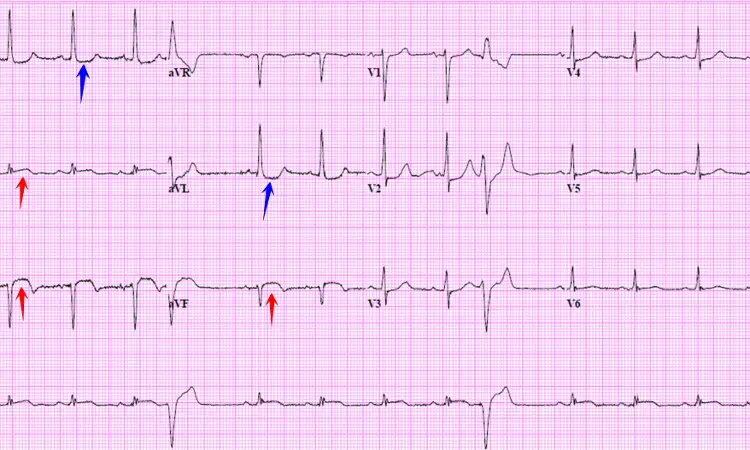- Home
- Medical news & Guidelines
- Anesthesiology
- Cardiology and CTVS
- Critical Care
- Dentistry
- Dermatology
- Diabetes and Endocrinology
- ENT
- Gastroenterology
- Medicine
- Nephrology
- Neurology
- Obstretics-Gynaecology
- Oncology
- Ophthalmology
- Orthopaedics
- Pediatrics-Neonatology
- Psychiatry
- Pulmonology
- Radiology
- Surgery
- Urology
- Laboratory Medicine
- Diet
- Nursing
- Paramedical
- Physiotherapy
- Health news
- Fact Check
- Bone Health Fact Check
- Brain Health Fact Check
- Cancer Related Fact Check
- Child Care Fact Check
- Dental and oral health fact check
- Diabetes and metabolic health fact check
- Diet and Nutrition Fact Check
- Eye and ENT Care Fact Check
- Fitness fact check
- Gut health fact check
- Heart health fact check
- Kidney health fact check
- Medical education fact check
- Men's health fact check
- Respiratory fact check
- Skin and hair care fact check
- Vaccine and Immunization fact check
- Women's health fact check
- AYUSH
- State News
- Andaman and Nicobar Islands
- Andhra Pradesh
- Arunachal Pradesh
- Assam
- Bihar
- Chandigarh
- Chattisgarh
- Dadra and Nagar Haveli
- Daman and Diu
- Delhi
- Goa
- Gujarat
- Haryana
- Himachal Pradesh
- Jammu & Kashmir
- Jharkhand
- Karnataka
- Kerala
- Ladakh
- Lakshadweep
- Madhya Pradesh
- Maharashtra
- Manipur
- Meghalaya
- Mizoram
- Nagaland
- Odisha
- Puducherry
- Punjab
- Rajasthan
- Sikkim
- Tamil Nadu
- Telangana
- Tripura
- Uttar Pradesh
- Uttrakhand
- West Bengal
- Medical Education
- Industry
Surgical repair of postinfarction VSR tied to high early mortality risk: Study

Surgical repair of postinfarction ventricular septal rupture (VSR) is associated with a high risk of early mortality, suggests a study published in the JAMA Netw Open.
Ventricular septal rupture (VSR) is a rare but life-threatening mechanical complication of acute myocardial infarction associated with high mortality despite prompt treatment. Surgery represents the standard of care; however, only small single-centre series or national registries are usually available in the literature, whereas international multicenter investigations have been poorly carried out, therefore limiting the evidence on this topic.
A team of researchers conducted a study to assess the clinical characteristics and early outcomes for patients who received surgery for postinfarction Ventricular septal rupture (VSR) and to identify factors independently associated with mortality.
The Mechanical Complications of Acute Myocardial Infarction: an International Multicenter Cohort (CAUTION) Study is a retrospective multicenter international cohort study that includes patients who were treated surgically for mechanical complications of acute myocardial infarction. The study was conducted from January 2001 to December 2019 at 26 different centres worldwide among 475 consecutive patients who underwent surgery for postinfarction Ventricular septal rupture (VSR).
The primary outcome was early mortality; secondary outcomes were postoperative complications.
The results of the study are as follows:
- Of the 475 patients included in the study, 290 (61.1%) were men, with a mean (SD) age of 68.5 (10.1) years.
- Cardiogenic shock was present in 213 patients (44.8%). Emergent or salvage surgery was performed in 212 cases (44.6%).
- The early mortality rate was 40.4% (192 patients), and it did not improve during the nearly 20 years considered for the study
- Low cardiac output syndrome and multiorgan failure were the most common causes of death
- Recurrent Ventricular septal rupture (VSR) occurred in 59 participants (12.4%) but was not associated with mortality.
- Cardiogenic and early surgery were associated with lower survival.
- At multivariate analysis, older age, preoperative cardiac arrest and percutaneous revascularization and postoperative need for intra-aortic balloon pump and extracorporeal membrane oxygenation were independently associated with mortality.
Thus, the researchers concluded that surgical repair of postinfarction VSR was associated with a high risk of early mortality; this risk has remained unchanged during the last 2 decades. Delayed surgery seemed associated with better survival. Age, preoperative cardiac arrest and percutaneous revascularization, and postoperative need for intra-aortic balloon pump and extracorporeal membrane oxygenation were independently associated with early mortality. Further prospective studies addressing preoperative and perioperative patient management are warranted to hopefully improve the currently suboptimal outcome.
Reference:
Surgical Treatment of Postinfarction Ventricular Septal Rupture by Daniele Ronco, et al. published in the JAMA Network Open.
doi:10.1001/jamanetworkopen.2021.28309
Dr. Shravani Dali has completed her BDS from Pravara institute of medical sciences, loni. Following which she extensively worked in the healthcare sector for 2+ years. She has been actively involved in writing blogs in field of health and wellness. Currently she is pursuing her Masters of public health-health administration from Tata institute of social sciences. She can be contacted at editorial@medicaldialogues.in.
Dr Kamal Kant Kohli-MBBS, DTCD- a chest specialist with more than 30 years of practice and a flair for writing clinical articles, Dr Kamal Kant Kohli joined Medical Dialogues as a Chief Editor of Medical News. Besides writing articles, as an editor, he proofreads and verifies all the medical content published on Medical Dialogues including those coming from journals, studies,medical conferences,guidelines etc. Email: drkohli@medicaldialogues.in. Contact no. 011-43720751


